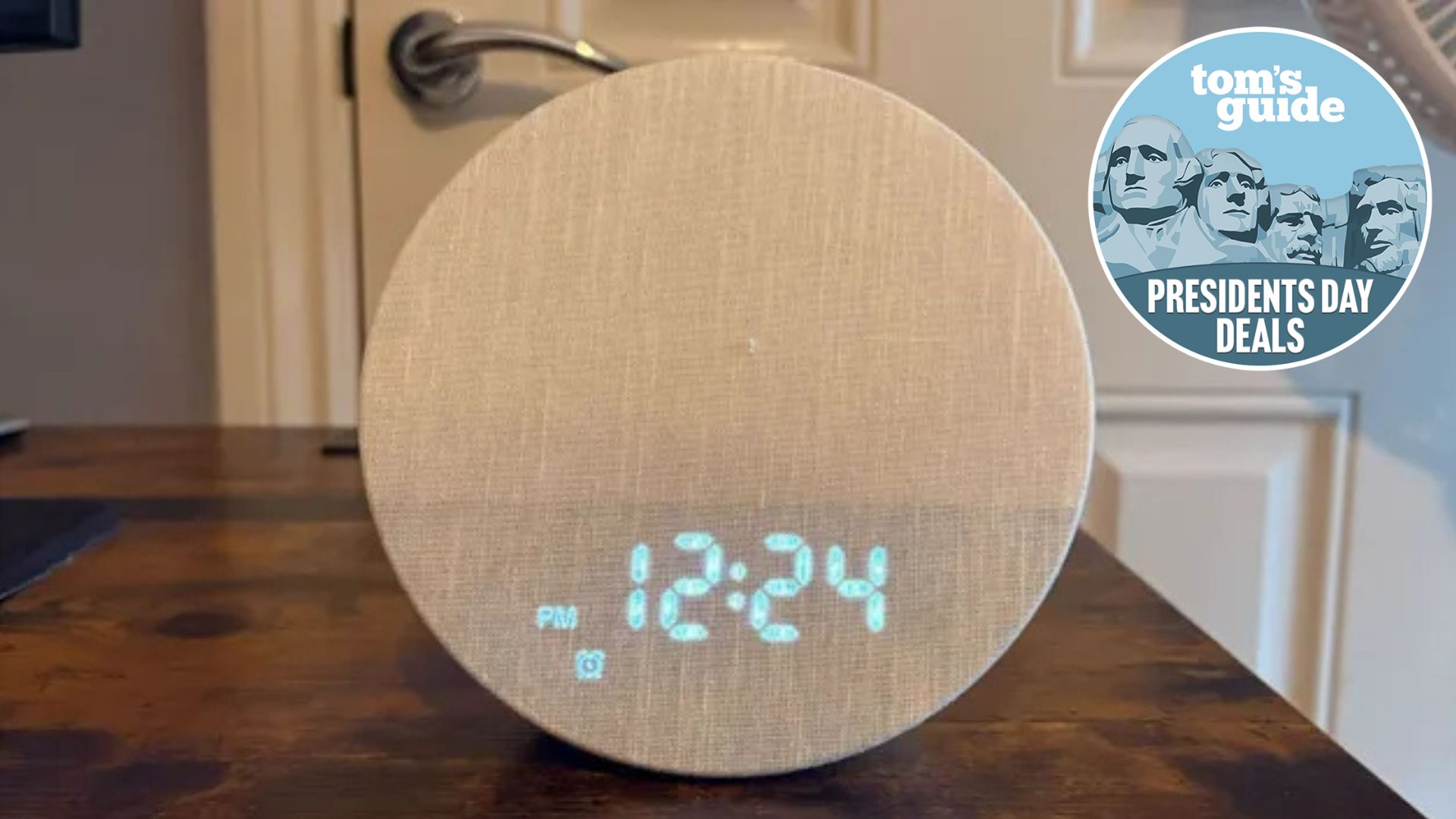Tom's Guide Verdict
The ROG Phone 6 Pro is a beast of a gaming phone, providing you all of the power you could possibly need. From the useful hardware and cooling features to the big display, the ROG Phone 6 Pro proves itself as the gold standard for the gaming phone niche. For most users, this phone would be overkill, and they’d be better off considering the top flagships from Apple, Samsung or OnePlus.
Pros
- +
Incredible battery life
- +
Excellent performance
- +
Fantastic speakers and haptic engine
- +
Useful software tweaks
Cons
- -
Only IPX4 water resistance
- -
Expensive
- -
Macro lens is functionally useless
Why you can trust Tom's Guide
Price: $999
Android version: 12
Display: 6.8-inch AMOLED (2488 x 1080)
Refresh rate: 165Hz
CPU: Snapdragon 8 Plus Gen 1
RAM: 18GB
Storage / Expandable: 512GB / No
Rear cameras: 50MP, 13MP ultrawide, macro
Front camera: 12MP
Battery: 6,000 mAh
Battery life (Hrs:Mins): 15:30 (Adaptive), 16:27 (60Hz)
Charging: 65W wired (charger included)
Ωize: 6.8 x 3 x 0.4 inches (173 x 77 x 10.3 mm)
Weight: 8.4 ounces (239 g)
Colors: Storm White
Gaming phones seem to have grown in popularity, and the ROG Phone 6 Pro stands out as the latest and most powerful. It sports the new and poorly-named Snapdragon 8 Plus Gen 1 chipset, a whopping 18GB of RAM, a huge 6.8-inch 165Hz display, and the best battery life we’ve ever seen on a phone.
Asus also revamped the AirTriggers (the ultrasonic shoulder buttons) to become even more versatile than before with up to 14 different mappable actions. The ROG Phone 6 Pro also enjoys a swath of cooling upgrades meant to keep the Snapdragon 8 Plus Gen 1 from getting too hot.
But at $1,299, the ROG Phone 6 Pro has stiff competition from more traditional rivals. And while Asus’ phone has a lot going for it, this handset lags behind others like the iPhone 13 Pro Max and Galaxy S22 Ultra in places like cameras. But if you’re interested in the best gaming phones, you likely care more about performance than what phone takes the best pictures.
In this ROG Phone 6 Pro review, I’ll go over why this is the most powerful gaming phone yet, even if it is rather over the top.
Asus ROG Phone 6 Pro review: Price and availability
The ROG Phone 6 Pro comes in at $1,299 with 512GB of storage and 18GB of RAM, costing more than other rival gaming phones like the RedMagic 7 Pro or Black Shark 5 Pro. It’ll be available later this year — Asus will only say that the phone will ship in the third quarter of 2022.
While the ROG Phone 6 Pro is a powerful device, it’s hard to justify its eye-watering price tag when, for example, you look at how its cameras stack up to other more traditional flagships. You could get an iPhone 13 Pro Max for just $200 less, nabbing yourself the best system-on-chip you can get in a phone, as well as the best camera phone we’ve tested.
In other words, the ROG Phone 6 Pro has a lot of work to do to earn its high cost. And in this day and age, it’s a hard sell. If the price of the ROG Phone 6 Pro proves too rich for your blood, remember there are other ROG Phone 6 devices with stripped-back features that cost less at $999.
Get instant access to breaking news, the hottest reviews, great deals and helpful tips.
Asus ROG Phone 6 Pro review: Display
As the most important element to gaming on a smartphone, the ROG Phone 6 Pro’s screen is very nice. At an expansive 6.8 inches with a resolution of 2488 x 1080, the display’s ideal for playing games.
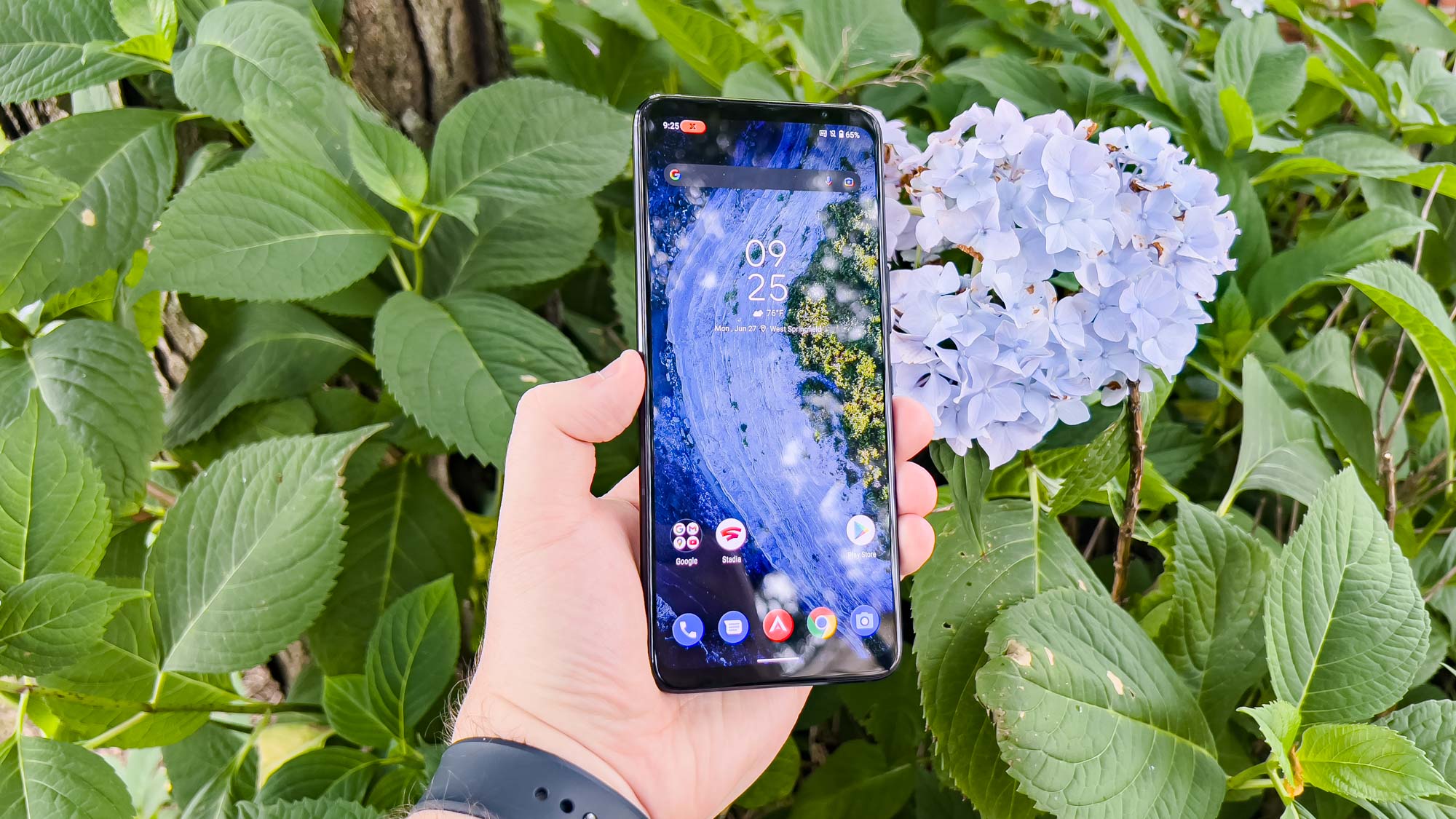
The FHD+ resolution is crisp, while the AMOLED’s punchy colors and deep blacks provide a pleasant viewing experience.
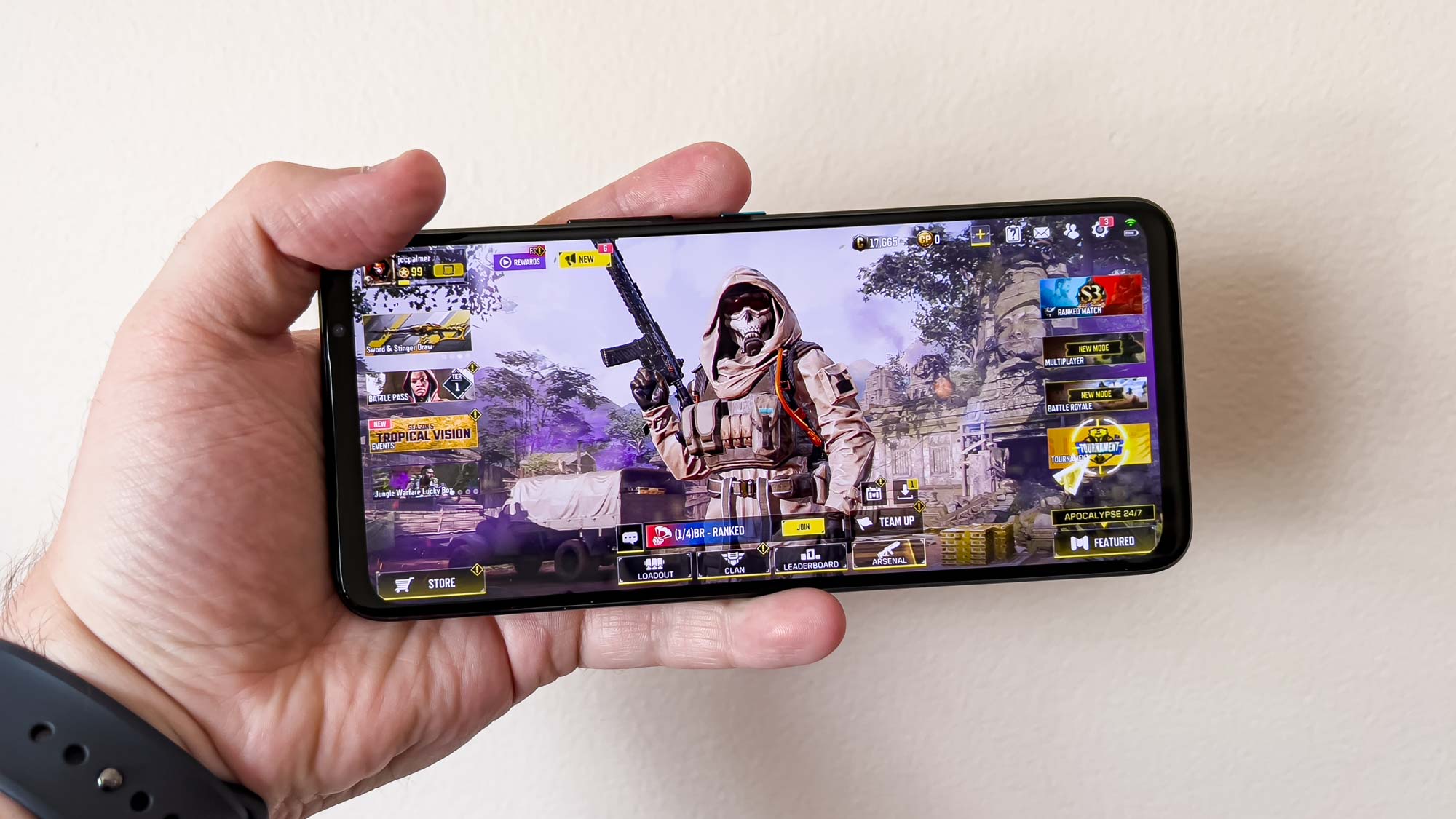
Here’s how the ROG Phone 6 Pro’s display compares to my current top picks for the best gaming phones, the Black Shark 5 Pro and iPhone 13 Pro Max.
| Row 0 - Cell 0 | ROG Phone 6 Pro | Black Shark 5 Pro | iPhone 13 Pro Max |
| Display size | 6.8 inches | 6.7 inches | 6.7 inches |
| sRGB (%) | 165 (Optimal) / 192 (Natural) | 152 (Saturated) / 110 (Natural) | 109 |
| DCI-P3 (%) | 117 (Optimal) / 137 (Natural) | 108 (Saturated) / 78 (Natural) | 77 |
| Delta-E | 0.37 (Optimal) / 0.33 (Natural) | 0.34 (Saturated) / 0.21 (Natural) | 0.21 |
| Peak brightness (nits) | 762 | 615 | 1038 |
The sRGB and DCI-P3 results for the ROG Phone 6 Pro’s Optimal mode look a bit out of place when compared to the Natural mode (which seem much higher that what we usually see), but our testing lab confirms that we had the right settings in place when putting the phone’s display through its paces.
The ROG Phone 6 Pro has a less accurate Delta-E color rating than both the Black Shark 5 Pro and iPhone 13 Pro Max. (The closer the Delta-E score is to zero, the better.) I do prefer both of those phones’ displays color-wise versus the ROG Phone 6 Pro’s.
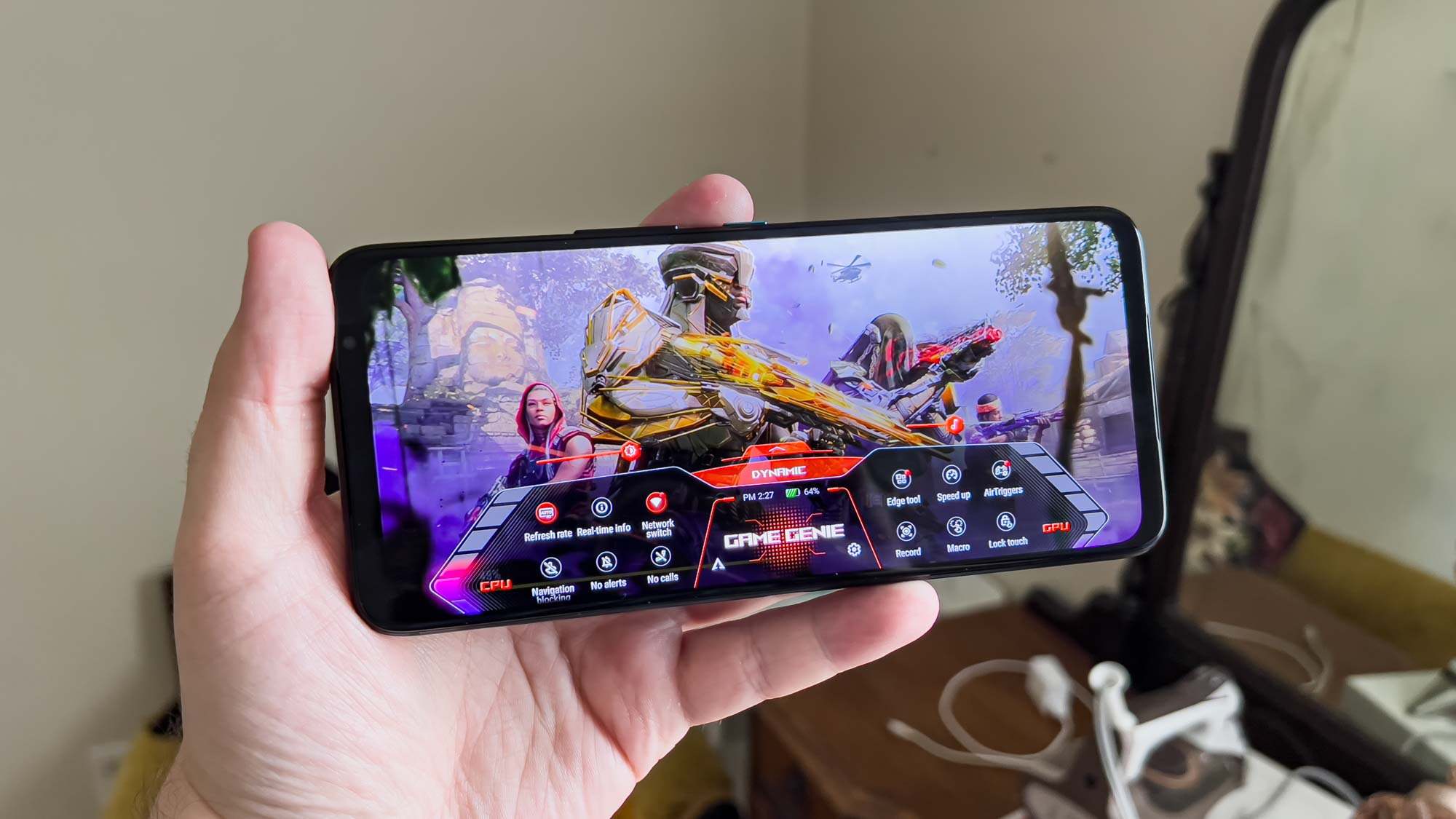
Despite the numbers, I enjoyed playing games like Genshin Impact and Apex Legends Mobile on the ROG Phone 6 Pro’s screen. Viewing movies was also a pleasure: take Blade Runner 2049 with its neons and harsh orange tones, all of which look incredible on this screen.
Asus ROG Phone 6 Pro review: Performance
With the new Snapdragon 8 Plus Gen 1 chipset, the ROG Phone 6 Pro leaps ahead of the other gaming phones that we’ve seen so far. The Plus variant of Qualcomm’s 2022 flagship system-on-chip is supposed to address some of the heat and power management issues of the Snapdragon 8 Gen 1, and this is the first phone where we’ve had a chance to see this in action. Qualcomm also claims a roughly 10% increase in CPU and GPU performance over the Snapdragon 8 Gen 1.
Here’s what our testing yielded:
| Row 0 - Cell 0 | ROG Phone 6 Pro | Black Shark 5 Pro | iPhone 13 Pro Max |
| CPU | Snapdragon 8 Plus Gen 1 | Snapdragon 8 Gen 1 | A15 Bionic |
| Geekbench 5 (single-core / multicore) | 1316 / 4197 | 1226 / 3671 | 1720 / 4549 |
| 3DMark Wild Life Unlimited (FPS) | 66 | 61 | 68 |
| 3DMark Wild Life Extreme Unlimited (FPS) | 16 | 15 | 15 |
There’s quite a leap in multicore performance in Geekbench over the Black Shark 5 Pro and its Snapdragon 8 Gen 1. In fact, the ROG Phone 6 Pro got significantly closer to the iPhone 13 Pro Max’s A15 Bionic result. These numbers certainly surprised me given that Apple Silicon usually enjoys quite a lead over Qualcomm.
Graphics performance in the 3DMark Wild Life Unlimited test also showed Qualcomm catching up to Apple, even though the Snapdragon 8 Gen 1 itself wasn’t too far off. On the Unlimited test for Wild Life, the ROG Phone 6 Pro hit 66 frames per second, just behind the iPhone 13 Pro Max’s 68 fps result.
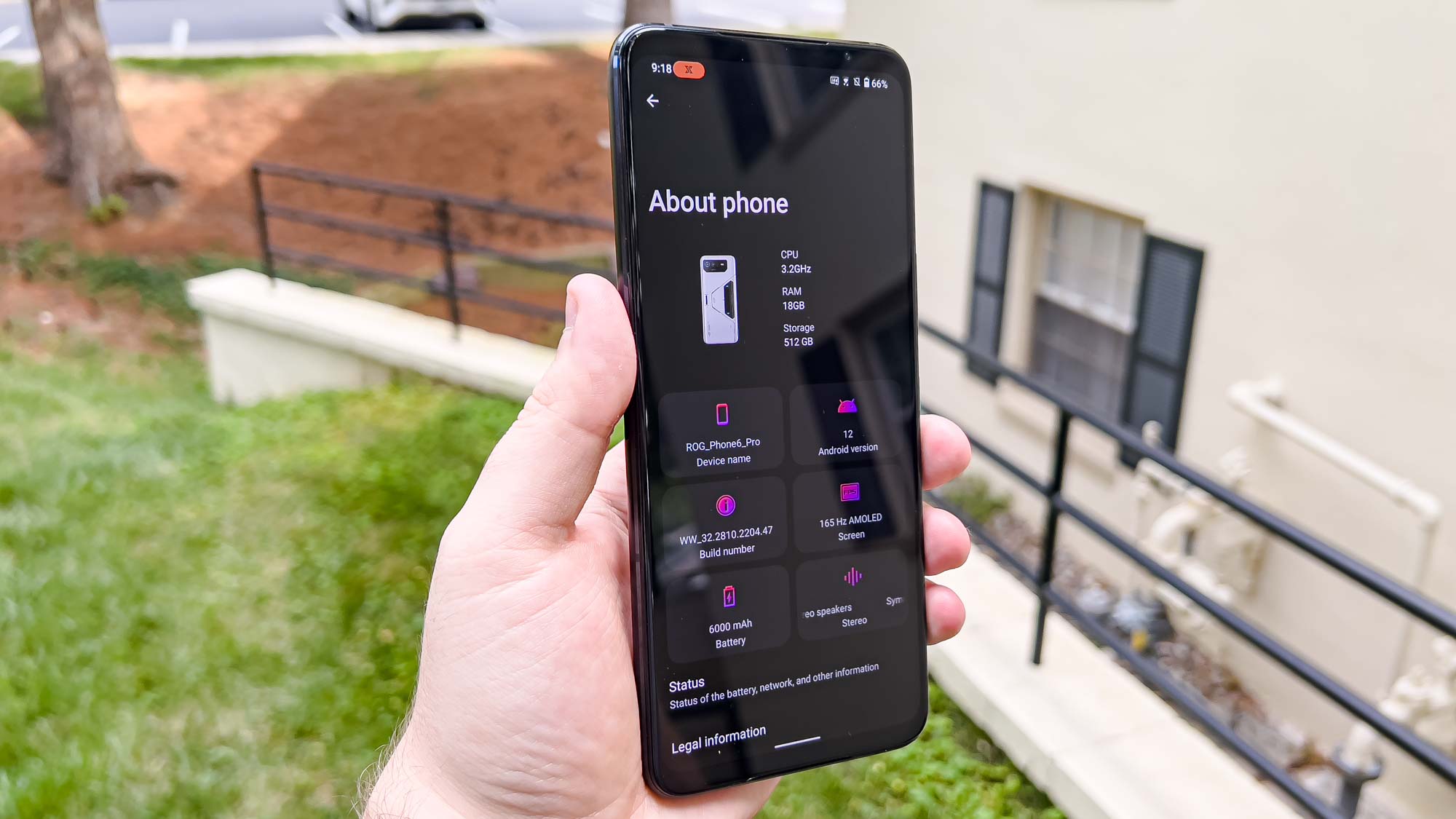
With 18GB of RAM, the ROG Phone 6 Pro is a beast, certainly the most powerful Android phone you can buy right now. The host of cooling features onboard — such multilayer graphene sheets that pull heat away — keep the Snapdragon 8 Plus Gen 1 chilled, lowering the chances of thermal throttling, a problem we saw on many Snapdragon 8 Gen 1 devices. If you want maximum cooling, you can use the new AeroActive Cooler (sold separately).
Asus ROG Phone 6 Pro review: Battery life
Asus kept the ROG Phone 5’s dual-cell battery design when it built the ROG Phone 6 Pro. The 6,000 mAh capacity is actually split into two 3,000 mAh batteries, each flanking the centered system-on-chip. Since 5,000 mAh on an Android phone is already huge, a 6,000 mAh power pack is mammoth.
We ran the ROG Phone 6 Pro through our custom battery life test: we set a phone’s display to 150 nits of brightness and then task it to reload web pages endlessly over a cellular connection. Here’s how long the ROG Phone 6 Pro lasted with its adaptive refresh rate enabled and with the refresh rate locked at 60Hz.
| Row 0 - Cell 0 | ROG Phone 6 Pro | Black Shark 5 Pro | iPhone 13 Pro Max |
| Battery size | 6,000 mAh | 4,650 mAh | 4,352 mAh (estimated) |
| Battery life (Hrs:Mins) | 15:30 (Adaptive) / 16:27 (60Hz) | 11:02 (Adaptive) / 9:42 (144Hz) / 9:53 (90Hz) / 10:53 (60Hz) | 12:16 |
| Charging speed | 65W | 120W | 20W |
| Recharge percentage (15 mins) | 44 | 92 | 19 |
| Recharge percentage (30 mins) | 81 | N/A (recharge completed in 18 minutes) | 40 |
The ROG Phone 6 Pro lasted so long that we didn’t have time to run the test on the 144Hz, 120Hz, and 90Hz refresh rate settings. This device destroys anything we’ve ever tested, setting itself as the king of our best phone battery life list. Seriously, I struggled to kill this thing, even after hours of Genshin Impact.
Lasting 15 hours and 30 minutes at an adaptive refresh rate that maxes out at 165Hz is ludicrous. It definitely made me wonder if Qualcomm has delivered on serious improvements in the Snapdragon 8 Plus Gen 1’s power efficiency. A 6,000 mAh battery inside the ROG Phone 6 Pro definitely helps, but I don’t recall seeing a phone last this long before, not even the ROG Phone 5 from last year. And when we locked the display to 60Hz on the 6 Pro, we saw a whopping 16.5 hours. That’s longer than some laptops.
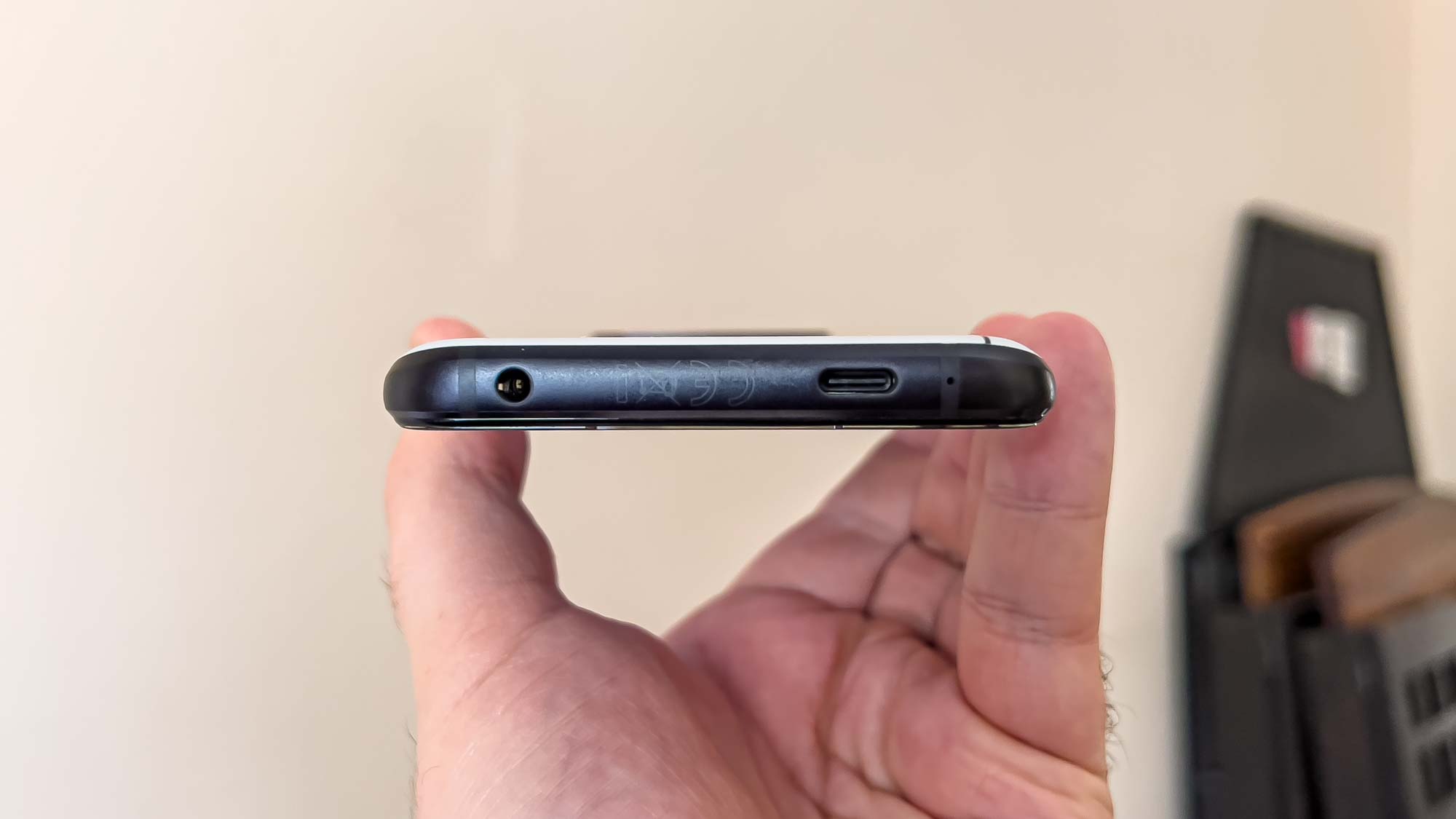
The included 65W charger also recharges the ROG Phone 6 Pro very quickly, especially given that monster battery. While the Black Shark 5 Pro’s 120W charger brought that phone back to 100% in just 18 minutes, the ROG Phone 6 Pro regained a huge chunk of its capacity in 30 minutes, certainly more than the iPhone 13 Pro Max with its measly 20W charger.
Asus ROG Phone 6 Pro review: Cameras, software and other features
Display, performance and battery life dominate any gaming phone evaluation, but there are other ROG Phone 6 Pro features worth addressing.
Cameras: With every gaming phone I’ve tested, cameras have ended up as the weak point. But people interested in gaming phones often don’t care as much about cameras as someone looking at an iPhone 13 or Galaxy S22.
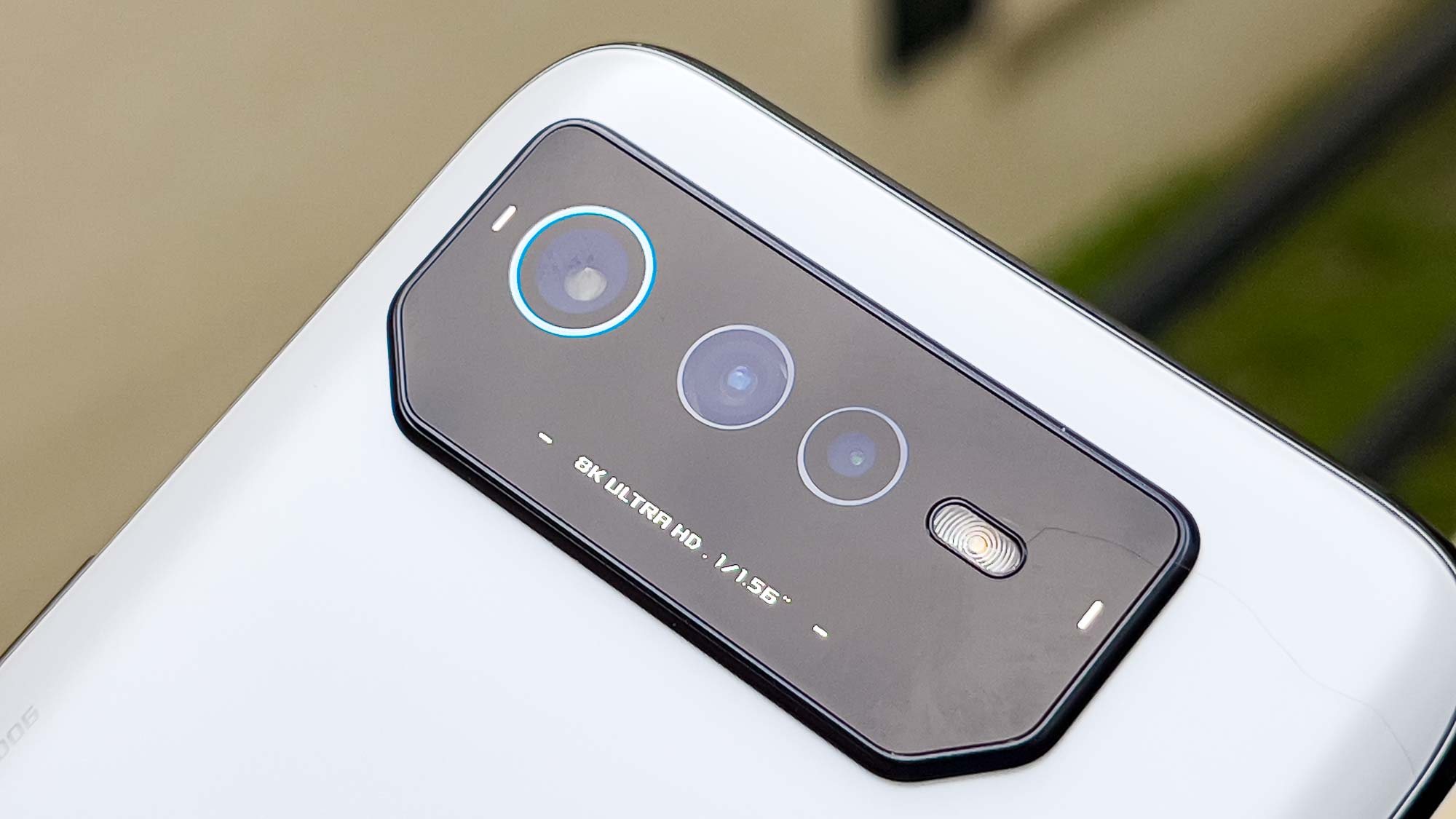
That said, the ROG Phone 6 Pro certainly surprised me on the camera front. The 50MP main sensor, paired with the 13MP ultrawide camera, performed decently well in my testing. The bowl of fruit, both outside and inside, looks rich and vibrant. While these photos can’t hold a candle to the likes of the Pixel 6 Pro (which costs $100 less), the ROG Phone 6 Pro’s results aren’t too bad when compared to other gaming phones.



Of course, as it should go without saying, the ROG Phone 6 Pro’s macro sensor of an undisclosed resolution serves no utility. Asus should have left it off and let the main and ultrawide shooters steal the show.

I don’t mind the selfie I got out of the ROG Phone 6 Pro, though I found the portrait and night shots to be rather lacking. The latter lost points for poor depth, color richness, and exposure. The portrait applied too much face smoothing for my taste with a weak bokeh effect.



Software: Android 12 comes standard on the ROG Phone 6 Pro. Considering other gaming phones I’ve tested, this device’s software is a nice change of pace with its simplicity. It’s very close to the stock Android you’ll find on a Pixel, but with Asus’ tweaks.
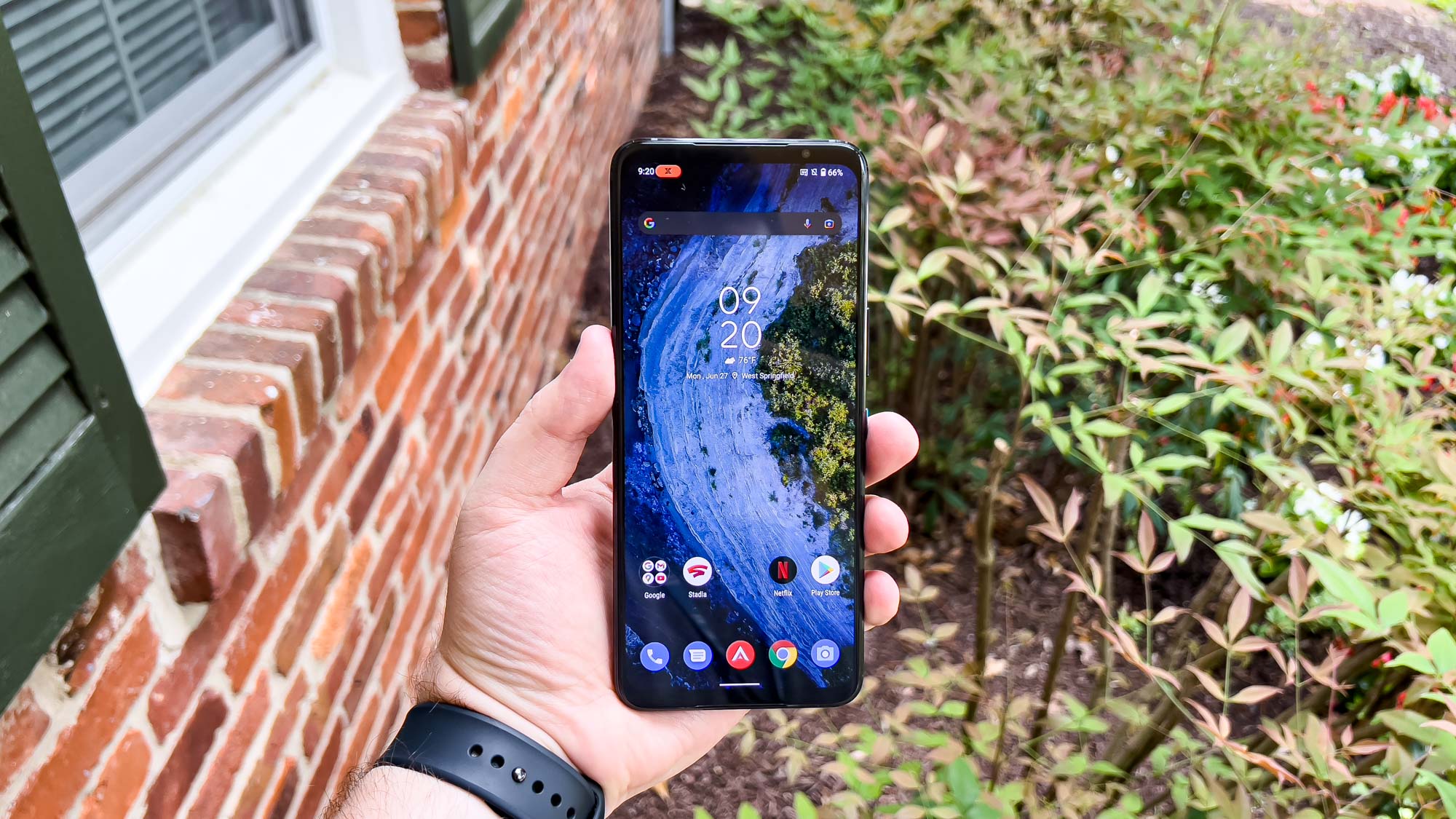
For the vast majority of interactions, the ROG Phone 6 Pro has a familiar and unobtrusive software experience. You can install themes which radically change the look and feel.
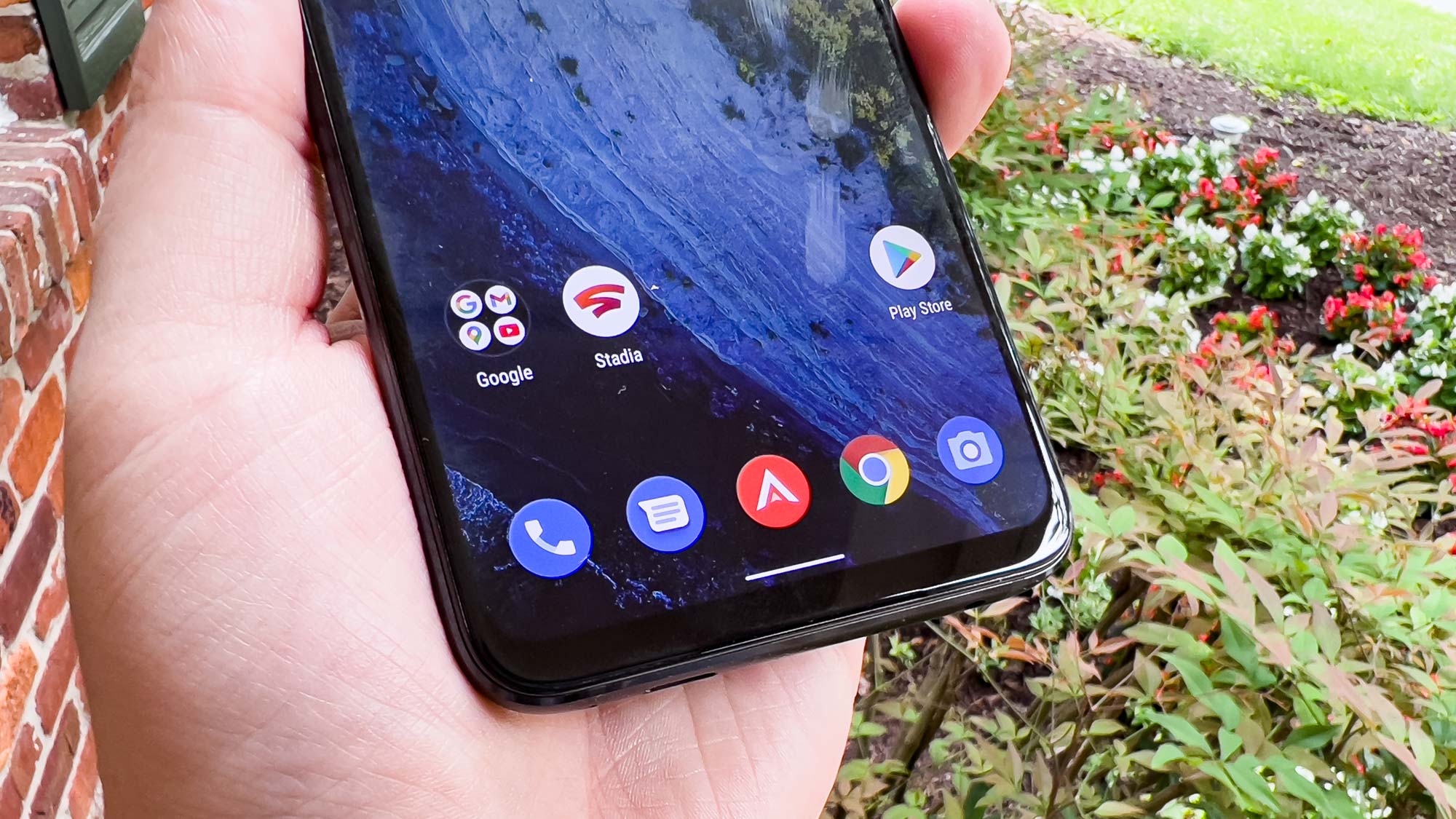
Of course, there are some additions to note such as Armoury Crate. This is your hub for gaming and controlling the phone’s performance modes, rear OLED panel options, and AirTriggers. You can monitor system stats like temps and clock speeds. There’s also a social space to connect to other ROG Phone users.
Game Genie is a HUD that turns some of Armoury Crate’s core features, like performance mode switching and stat displays, into an overlay on top of your games. It’s useful for checking other things like signal strength and battery percentage, too, without pulling down the status bar while you’re in-game.
Gaming features: This wouldn’t be a gaming phone without a slew of extra additional features, and the ROG Phone 6 Pro pulls out all the stops. The star of the show are the AirTriggers, ultrasonic shoulder buttons that come packed with options. But the ROG Phone 6 Pro also sports a rear color OLED panel where you can play context-specific animations. You can customize these in the Armoury Crate app.
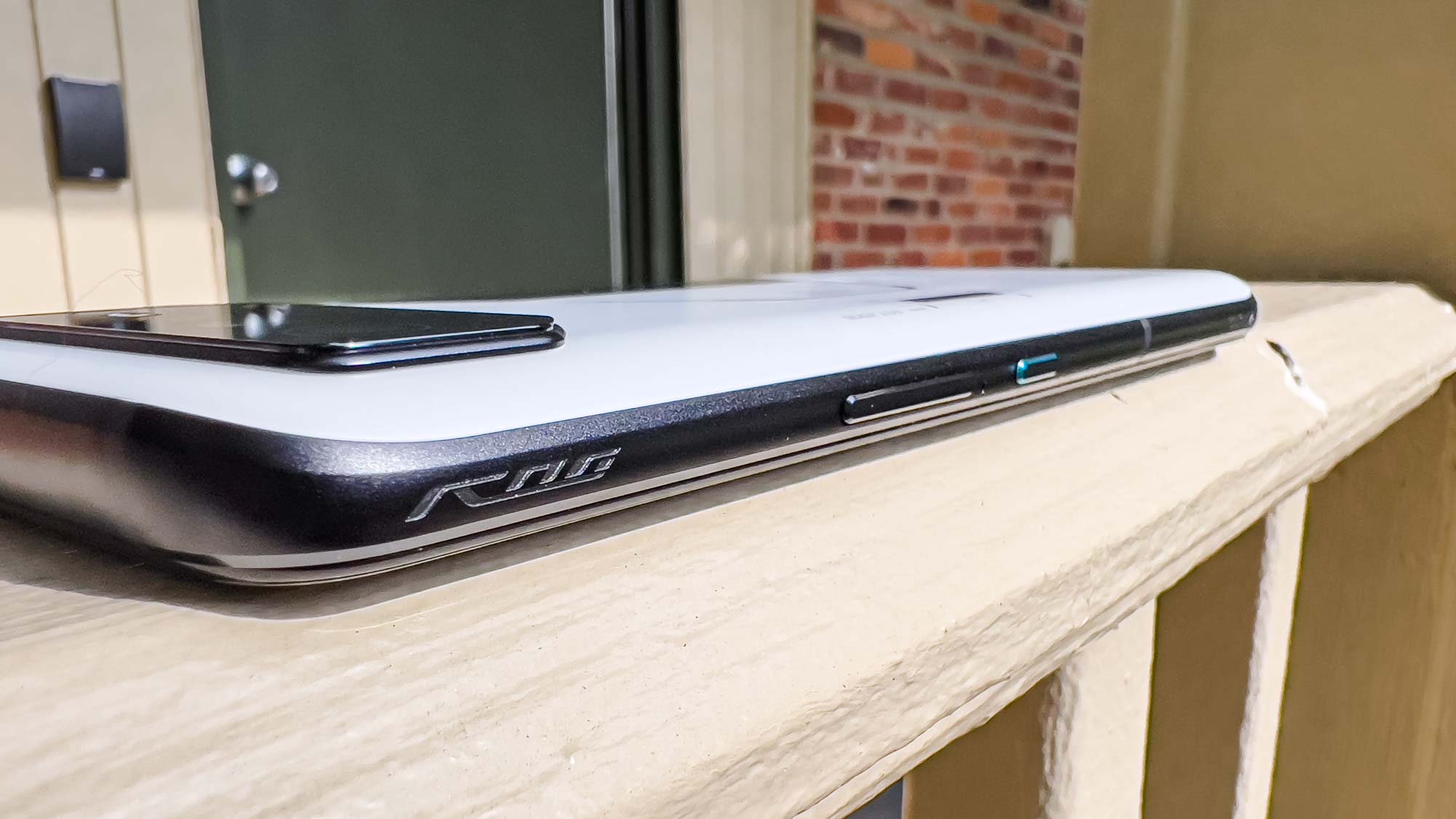
But back to the AirTriggers. You can map up to 14 different gesture actions to these shoulder buttons, allowing for an insane amount of control configurations. Further, the new Press and Lift system lets you add two separate controls to the actions of pressing and lifting an AirTrigger. The ROG Phone 6 Pro also has gyroscopic aiming while holding a trigger — this made playing Call of Duty: Mobile without a controller a breeze.
The ROG Phone 6 Pro also has support for the new sixth-generation AeroActive Cooler — a separate accessory — which will help the Snapdragon 8 Plus Gen 1 sustain higher performance for longer periods of time without the need for thermal throttling.
Asus ROG Phone 6 Pro review: Verdict
If you want a do-it-all gaming phone, the ROG Phone 6 Pro is the ultimate choice. While I prefer the physical shoulder buttons on the Black Shark 5 Pro, the ROG Phone 6 Pro wins in every other meaningful way. I think Xiaomi did a better job with cameras, but Asus certainly improved upon last year’s ROG Phone 5.
At $1,299, the ROG Phone 6 Pro is a very pricey pick. You could opt for the less expensive ROG Phone 6 models, which offer the same performance and battery life, just with less RAM and no rear OLED panel. You can save a hefty $300 by going this route.
The question you have to ask yourself is: Do you need all of this power? The ROG Phone 6 Pro is definitely overkill for mobile gaming, but if you want the most Android horsepower money can buy right now, then this is the handset for you. This latest ROG phone should also stand the test of time as mobile games continue to get more advanced.

Jordan is the Phones Editor for Tom's Guide, covering all things phone-related. He's written about phones for over six years and plans to continue for a long while to come. He loves nothing more than relaxing in his home with a book, game, or his latest personal writing project. Jordan likes finding new things to dive into, from books and games to new mechanical keyboard switches and fun keycap sets. Outside of work, you can find him poring over open-source software and his studies.






